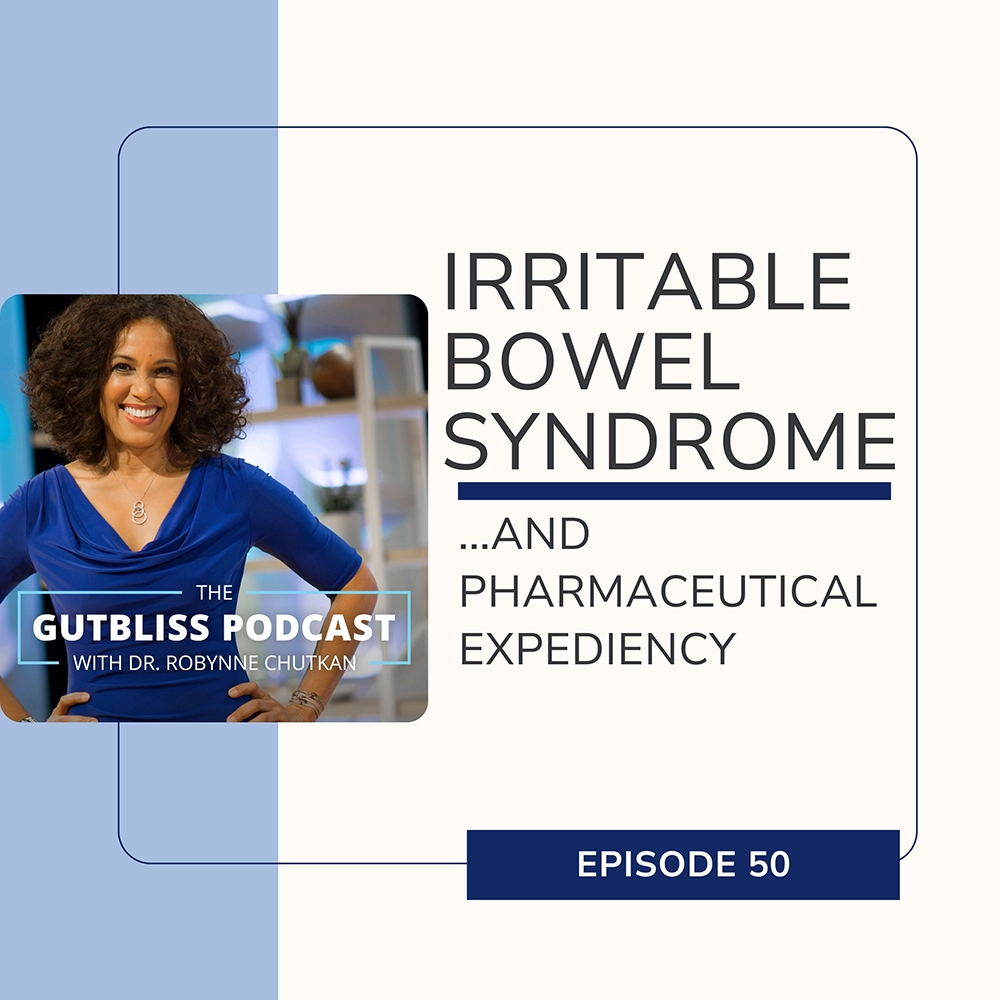On today’s show, all about B.O. – and its relationship with your gut microbiome! Could using anti-perspirants actually make your armpits stinkier? I’ll explain how introducing chemicals into delicate ecosystems like your armpits, in an effort to cleanse, refresh, or “improve” your body’s natural state can backfire and produce the opposite effect: microbial imbalance and more problems. Plus, my best tips for how to smell like a bed of roses – without disrupting your gut bacteria.
Thank you for being a part of our community! For the latest in digestive wellness go to https://gutbliss.com/ and follow us on Instagram for more gut health info.
On today’s show, all about B.O. – and its relationship with your gut microbiome!
I’m a sniffer. I like to smell things. And in my line of work as a gastroenterologist, sniffing can come in really handy. When I do colonoscopy on a patient with colitis for example, I see the ulcers with my colonoscope, but I smell the inflammation before I see it, before the ulcers are even visible. In fact, I can sometimes smell what’s going on in the colon when I do the rectal exam – before I even insert the scope into the colon.
You might be wondering why colitis has a particular smell? It’s because with inflammation, there’s usually pus – a thick fluid made up of dead tissue, white blood cells, and bacteria, and it’s the bacteria in pus that create it’s distinct odor. In gastroenterology there are lots of different conditions to smell: diarrhea from someone with a rotavirus infection has a rotten eggs smell; lactose intolerance – if you are one of the 70% of adults worldwide who don’t tolerate dairy, you know that lactose intolerance can produce pretty foul gas. I can sniff out someone who eats a lot of meat and eggs because their colon has a more sulfurous odor than someone who eats a plant-based diet.
But what about the rest of your body? The area that people struggle the most with when it comes to body odor, isn’t their colon, it’s their armpits. The two main types of bacteria that inhabit your underarms are Staphylococcus and Corynebacterium. Staphylococcus tends to be the dominant species in women and has very little smell, while more odor-producing Corynebacterium predominates in men. And that’s because men secrete more fat in their sweat, which is the preferred food of lipid-loving Corynebacterium. If you’re dealing with smelly armpits, you may be tempted to pile on the anti-perspirant but coming up, I’m going to tell you why that can actually make you smellier!
While we may use the terms interchangeably, antiperspirant and deodorant are not the same thing. Deodorant masks odor – usually with a fragrance, while an antiperspirant actually reduces how much you sweat. Most antiperspirants contain aluminum compounds that block your sweat glands, and that reduces the amount of perspiration that reaches your skin. That sounds great: less sweaty underarms. But here’s the problem: aluminum salts in antiperspirants have a greater impact on Staphylococcus bacteria, and so they kill off more Staphylococcus, which leads to an increase in the population of smelly Corynebacterium. Remember, in the microbiome, whether we’re talking about the gut or the skin, there’s competition between different species for space and dominance. So, when you use antiperspirants, you’re actually altering the microbiome of your armpit—and not for the better, because you’re interfering with the natural balance and disproportionately increasing the number of Corynebacterium. A Belgian study published in the Archives of Dermatological Research confirmed that the more antiperspirant you use, the more problems you have with smelly pits because of this increase in the levels of malodorous bacteria. You’re selectively increasing the smelly bacteria populating your armpit.
My own antiperspirant and deodorant free experiment came to a crashing halt when one of my colleagues at work had to break some bad news to me. I was in the endoscopy suite in between procedures, bragging how I’d gone a couple weeks without using any underarm products and I was feeling very proud of myself for being so au natural. I lifted up my arm so my good friend and colleague Doug, who’s a nurse anesthetist, could get a whiff. I said “Doug, smell me. I haven’t used anything in weeks, and I actually went to yoga this morning and I haven’t showered”. He took a whiff, looked me dead in the eye and said, “Ahmm, you don’t smell as good as you think you do.” And that’s when I started using a natural coconut oil product which I love, and which does not mess up my armpit microbiome. And which my colleagues are also very happy that I use.
So I’ve told you why antiperspirants can be problematic but vaginal douching is a similarly bad idea because it disrupts the vaginal flora and depletes the essential Lactobacillus bacteria that repel viral invaders. Regular douching can actually increase your risk of sexually transmitted diseases like HIV and herpes.
Introducing chemicals into delicate ecosystems like your vagina or armpits, in an effort to cleanse, or refresh, or “improve” your body’s natural state usually backfires and produces the opposite effect: microbial imbalance and more problems. Your vagina is the ultimate self-cleaning oven – it doesn’t need cleansing; and it’s not supposed to smell like a summer’s eve.
When our daughter started middle school, something odd happened. And I remember the first time I noticed it. She got into the car after soccer practice, and there was a distinct odor that accompanied her. And I remember thinking to myself, hmm, we really need to clean those soccer boots. Or I thought maybe there was some food in her bag that had gone moldy. And then I discovered that SHE was the one who was smelling pungent at the end of the school day or after sports practice.
If you are sniffing around your tweens or teens you’ll probably notice the same thing: as their hormones change they start to sweat more and secrete more sebum, especially in their underarm and groin, and that increase in perspiration combines with the bacteria that live in those moist areas to create more odor. Scientists in Germany did a study that found puberty makes teenagers’ armpits smell of cheese, goat, and urine. Infants, on the other hand, have high levels of a substance that smells like flowers and soap – you know that wonderful baby scent.
Researchers have found that these distinct body odors influence the interaction between parents and their children. The flowery, soapy smell of babies facilitates affection and bonding with the parents – and its also more recognizable to the mother so it helps her identify her baby. The less delightful smell of adolescent children is not only less appealing, but it’s also harder for the parent to recognize their child through scent as they get older. And that makes sense, because in the wild, once a child goes through puberty they’re designed to leave the household and be off fending for themselves.
So now that you understand why teenagers are funky, and that it’s totally normal and no judgment, I want to tell you about the connection between stress, the microbiome, and body odor – and it has to do with your sweat glands.
You have two kinds of sweat glands: eccrine glands, which are located all over your body and open to the skin, and apocrine glands, which release their contents into areas with hair follicles like your armpits and groin. Eccrine glands secrete odorless water and salt onto your skin when it’s hot or when you’re exercising, which helps cool you off as it evaporates. Apocrine glands release a milky white substance when you’re stressed that combines with bacteria in your armpits and groin to create smelly body odor. Most of us can clearly distinguish between the slightly salty smell after a hard workout or on a hot day and the mustier smell of being stressed out. I know that I can go for a long run or do a heated vinyasa yoga class and I smell fine after. In fact, sometimes that even smell better after. But if I’m nervous about something, like I’m about to give a talk in front of a live audience, my pits get super funky. Whatever I’m wearing has to immediately go to the dry cleaners or into the washing machine.
Stress can make you smelly, but the odors coming from your body are also a reflection of what you’re putting into your body. Cows that are fed corn on the feedlot tend to have foul smelling stool and gas and they produce more pathogenic E. coli bacteria. That’s a result of the difference in bacterial populations in their gut from eating an unnatural diet like corn, that they’re not designed to eat, instead of grass. If you ever get a chance to do this, smell the poo from cows on a farm that are grazing and eating grass. It smells pretty good. Now you won’t be able to get anywhere near an industrial feed lot because they don’t generally allow people to see what’s going on there, but if you could get a whiff of that poo, you’d be able to tell that it smells really different from the grass fed cows.
We suffer the same thing when it comes to our own body odor, and what our stool and our gas smells like when we eat a diet full of processed food and meat instead of fresh fruits and vegetables. A study from Czechoslovakia tested the effect of red meat consumption on body odor attractiveness. They put participants on a “meat” versus “nonmeat” diet for 2 weeks and they used underarm pads to collect body odor. Samples were assessed for pleasantness, and attractiveness. The odor of people on the nonmeat diet was judged as much more attractive, more pleasant, and less intense. And remember I told you earlier – I can smell that difference in the colon in people who are eating lots of animal protein.
A change in your personal aroma is one of the first things you will start to notice as your microbiome shifts on a more plant-centric diet. My patients who are drinking a big green smoothie every morning frequently tell me that in addition to having fantastic bowel movements, they also notice that they smell better and have less BO.
3 takeaways:
1. I want you to think twice before you disrupt the natural ecosystem in places like your armpits or your groin, because this often backfires and creates more problems.
2. If quitting antiperspirants cold turkey seems a bit drastic, consider going without on days when you’re not working closely alongside other people, or try dabbing a few drops of lavender essential oil under your armpits.
3. If you really want to smell like a bed of roses, focus less on what you’re putting on your body and more on what you’re putting IN your body – green leafy vegetables are naturally deodorizing and will help you smell great.
So that’s it for this edition of the Gutbliss podcast on BO and the microbiome.









